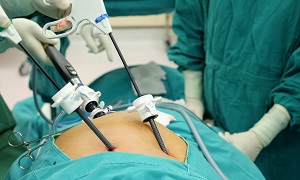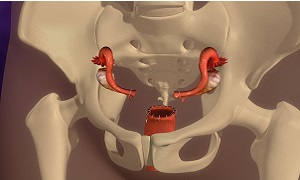Best Doctors in India for Endometriosis Surgery
Best Hospitals in India for Endometriosis Surgery
- City: Bengaluru, India
Hospital Highlights:
- Fortis Hospital Bannerghatta, Bengaluru was established in 2006.
- The hospital is a 276 bedded multi-specialty tertiary care facility.
- The hospital specializes in cutting-edge medical technology and dedicated patient care services.
- The hospital is equipped with state-of-the-art technologies like trans-radial angioplasty, trans-abdominal cardiac surgery, and computerized TKR navigation surgery.
- The hospital provides specialty medical services in cardiology, cardiac surgery, orthopedics, neurology, neuro-surgery, GI, and Minimal Access Surgery (MAS).
- City: Chennai, India
Hospital Highlights:
- Fortis Malar was established in 1992 and was formerly known as Malar Hospital.
- The hospital specializes in cutting-edge medical technology and dedicated patient care services.
- The hospital is multi-specialty, tertiary care facility with 180 beds.
- The hospital offers comprehensive medical care in specialties such as cardiology, cardio-thoracic surgery, neurology, neurosurgery, orthopedics, nephrology, gynecology, gastroenterology, urology, pediatrics, and diabetes.
- City: New Delhi, India
Hospital Highlights:
- Established in 1996, Pushpawati Singhania Research Institute is one of the top hospitals in the NCR region, as well as one of the top facilities in India for gastroenterology. The hospital is one of South Asia’s first institutes in medical and surgical treatment for diseases related to digestion.
- The hospital is equipped with state-of-the art facilities coupled with the latest equipment as well as renowned consultants from various parts of India as well as other parts of the world.
- City: New Delhi, India
Hospital Highlights:
- State-of-the-art technology and devoted healthcare professionals have been brought together under one roof at Venkateshwar Hospital to provide genuine medical care. The hospital’s professionals work together as a team to deliver the best possible treatment to their patients, using the most sophisticated equipment and information technology.
- Venkateshwar Hospital’s mission is to attain global excellence in healthcare by employing evidence-based, ethical clinical practices and cutting-edge technology by a team of highly skilled experts.
- City: New Delhi, India
Hospital Highlights:
- Sir Ganga Ram Hospital, New Delhi is known to provide the latest medical procedures with the latest technology in all of its units.
- The hospital has a team of reputed doctors, nurses, and healthcare professionals that ensure that patients receive quality care at affordable costs.
- Staffed with a team of highly qualified doctors, dedicated nurses, and paramedical and non-medical staff, the hospital aims to lead in healthcare delivery, medical education, training, and research.
- As per the vision of the founder, the hospital also provides free treatment to the economically weaker sections of society.
- Sir Ganga Ram Hospital also provides training to young doctors under the Diplomate in National Board(DNB) program. The DNB program at the hospital was started in 1984 and it is known for currently running the maximum number of DNB specialties in the country. It also has the distinction of having the first bone bank in India.
- City: Kerala, India
Hospital Highlights:
- Established in 2019, Apollo Adlux Hospital is the first Apollo Hospital in Kerala and the 73rd hospital owned by Apollo Group in India. With the state’s most advanced, comprehensive healthcare infrastructure and cutting-edge technologies, Apollo Adlux Hospital stands as an example of medical excellence in Kerala.
- With over 34 multi-specialty departments, the hospital believes in providing the best quality treatment to its patients at affordable rates, ensuring comfort at their difficult times.
- The 300-bed hospital is managed by a team of highly qualified and experienced experts who delivers exceptional hospitality to their patients and treats them with great compassion.
- With its affiliation with the Apollo Hospitals Group, the hospital aims in providing patients with top-notch healthcare services while also serving communities in Kerala.
- The hospital has good railway and road connections, and is conveniently close to Cochin International Airport.
- City: Gurugram, India
Hospital Highlights:
- Situated near DLF Cyber City, Gurugram, Narayana Superspecialty Hospital is one of the top medical facilities in the Delhi NCR region, catering to the needs of the people. Known for its commitment to quality medical care and patient service, the hospital is a state-of-the-art facility with planned and well-equipped sections, which includes a spacious OPD area as well as comfortable patient rooms.
- It is the closest super-specialty hospital from Indira Gandhi International Airport towards Gurugram, and also the nearest super specialty hospital from DLF Cyber City. It is also close to major residential areas in Gurugram.
- It is part of the renowned Narayana Health Group. Established in 2000, by Dr. Devi Shetty, a renowned cardiac surgeon, it has grown to be one fo India’s leading healthcare groups.
- City: Noida, India
Hospital Highlights:
- Fortis Hospital, Noida, stands as one of the oldest and most trusted healthcare institutions in the region, setting a benchmark for comprehensive medical care.
- As the second mega hub hospital in the Fortis Healthcare Group, Fortis Hospital, Noida, upholds a legacy of trust among more than 1.2 million patients. By integrating top-tier professionals with cutting-edge technology, the hospital delivers superior treatment across various medical disciplines.
- Specializing in advanced Neurosciences, Orthopedics, Kidney and Liver Transplant Programmes, Fortis Hospital, Noida has successfully performed over 1,500 transplants, solidifying its reputation as a leader in specialized medical interventions.
Endometriosis Surgery
Endometriosis is an ailment that causes tissue growing normally on the inside lining of the uterus to implant in other parts of the abdomen. The misplaced tissue can lead to symptoms like pain which can occur during a period, bowel movements or sexual intercourse. Having endometriosis also makes it harder for a woman to get pregnant.
Though surgery should be able to relieve your pain as well as improve your odds of conceiving, it can be difficult to know what to expect from surgery.
Purpose
Generally, two main treatments are used by doctors for endometriosis, i.e. medicine and surgery. Surgery is never considered as a first response. It is only considered when medications fail to provide you the desired results.
Surgery is also considered if you are trying to get pregnant but have not been successful. The odds of getting pregnant usually increase after the endometriosis tissue is removed.
It is important to note that you need to discuss properly with your doctor if you are considering surgery, as it is a big decision, especially if you are considering a hysterectomy, which can remove your uterus and possibly your ovaries as well. Without ovaries and a uterus, pregnancy is not possible.
Types
Two main types of surgery are used for treating endometriosis:
- Conservative surgery is for removing as much of the endometriosis tissue as much as possible. But this procedure can preserve your reproductive organs, i.e. ovaries and uterus. This procedure is generally done through small incisions, known as laparoscopy. Laparoscopy can be used for diagnosis as well.
- Hysterectomy is for treating more severe endometriosis. The surgeon first removes your uterus, as well as possibly your cervix and ovaries. If you undergo this procedure, pregnancy will no longer be possible.
Preparation
Your doctors might ask you to avoid certain kinds of medications, before your surgery. You also need to avoid smoking for as long as possible, before and after surgery.
On the day of the surgery, your doctor will advise you not to have any food or liquid for at least 8 hours before the procedure.
Your doctor might also ask you to take a laxative to empty your bowels completely before the surgery.
Procedure
Laparoscopy
The most common procedure for diagnosing and removing mild to moderate endometriosis is laparoscopy.
First, you will be given anesthesia, so that you will not feel any pain. Then your doctor will fill your belly with gas, as this will allow your surgeon to see inside your abdomen.
Next, a few small incisions will be made near your belly button. A lighted scope will be inserted into one of these incisions.
Surgical instruments are going to be inserted into one of these openings.
Using knife, heat or laser, your doctor will be removing as much of the endometriosis tissue as possible, from your organs such as the bladder, ovaries, fallopian tubes and rectum. A sample of this tissue might be sent to the lab for testing. The surgeon will also remove any scar tissue in these organs. At last, your incisions will be closed up as well.
In most cases, a patient should be able to return home the same day of the surgery.
Hysterectomy
Vaginally
The surgeon will first make an incision in your lower pelvis and remove the uterus and other reproductive organs through the incision.
Hysterectomy
The surgeon removes your uterus and your cervix through the vagina, without making any incision.
Laparoscopically
Few small incisions are made in your abdomen. Through these incisions, your surgeon will be removing your uterus and possibly your cervix.
Aftercare & recovery
You should recover faster after laparoscopic surgery than after an open hysterectomy. For the first few days, your activities might be limited after the procedure. Discuss with your surgeon when you should be able to go back to driving, working or exercise. Generally, a full recovery from a hysterectomy can take four to six weeks.
If you undergo a hysterectomy, you will not get a period anymore.
Although surgery can help in relieving pain and laparoscopic surgery can help you get pregnant. It doesn’t necessarily cure endometriosis, even if you undergo a hysterectomy. You might still experience symptoms if you have any endometriosis tissue left in your abdomen.
In around 20 to 40 percent of women, symptoms generally come back within five years. The remaining tissue can continue to grow, and it is not possible to remove every cell of misplaced tissue.
Risks
Although endometriosis surgery is generally safe, like all surgeries it may have few risks, which can include bleeding, infection, damage to any nearby nerves or blood vessels, as well as an abnormal connection between two organs in the abdomen.
If you experience any symptoms such as fever over 38 ° Celsius, redness or swelling at the incision site, heavy bleeding in your vagina or the incision site, or severe pain, then you need to contact your doctor.











